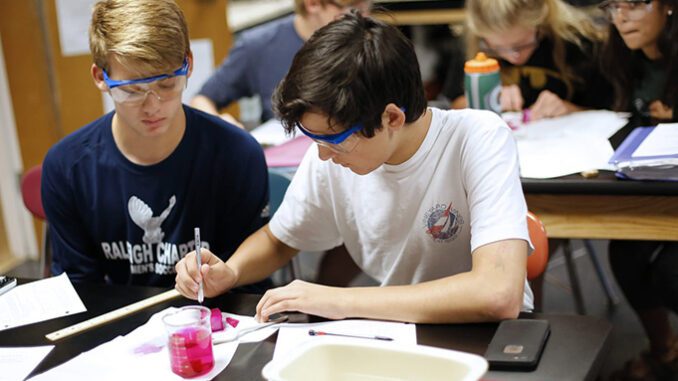
RALEIGH — Following recommendations from the N.C. Office of Charter Schools and the state’s Charter Schools Advisory Board, a bill has been filed that would fast-track applications that replicate existing high-quality charter schools.
House Bill 616, titled Replication Charter Act, was filed by state Rep. John Torbett (R-Gaston).
In order to qualify for fast-tracking, charter-school-operator applicants would have to provide three years of academic outcomes equal or greater to traditional-district-school counterparts in their current location.
“This legislation aims for high-quality charters to locate in poor, underserved areas and not have their ability to replicate their high-quality schools revoked, because they have taken on a school in one of these areas,” Torbett told North State Journal in an email.
Additionally, applicants for fast-tracking will have to supply three years of audits for each school they already operate. Applicants may also contract with an education management organization to demonstrate their outcomes and financial viability.
The bill instructs the State Board of Education to create the process for fast-tracking a charter school’s application so that it may be “completed in less than 120 days from the application submission date.”
At the May 13 meeting of the N.C. State Board of Education, the annual charter school report presented to the board showed continued high demand and increased enrollment levels.
“The demand for charter schools continues to grow as evidenced by the continued increase in enrollment despite the pandemic. National media reported extensively this past year on the effects of the pandemic on student enrollment, including here in North Carolina,” the summary of the report reads.
The report, which will be given to state lawmakers, states that for the 2019-2020 school year, over 117,000 North Carolina students were enrolled in one of the state’s 200 charter schools. That’s 7.5% of the state’s total average daily membership.
The report also says that as of October 2020, there were over 126,000 students enrolled in a charter school, which is 8.4% of North Carolina’s total public-school population. Earlier in April, officials with the Department of Public Instruction reported that 78% of charter schools across the state had a waitlist, totaling around 76,000 students.
Charter schools appear to have weathered the pandemic better than district schools, according to survey results showing charters reported just over 9% of their students are at-risk for academic failure this year compared to just under 23% of traditional district students.
According to the report, 193 out of 195 charter schools, or 98.97%, met or exceeded operational goals. Underscored was the fact that charter schools receive less funding on average than their traditional district counterparts. In 2019-20, charter schools received just 7.5% of the state’s $10.37 billion in education funding.
Seven new charter schools opened during the 2020-21 school year and 10 more are scheduled to open in the fall of 2021.
Critics have regularly complained that charter schools lack diversity and are majority white; however, the report shows white student enrollment has been steadily declining from 58.6% in 2014 to 51.16% in 2020. In 2010, white students made up 62% of charter school students, but as of fall 2020, that figure dropped to just over 51%.
The American Indian or Alaskan Native charter enrollment has also declined over the last decade from just over one percent to 0.60%.
Asian, Hispanic and black student enrollment has risen. Asian enrollment is now close to four percent. The black or African American student enrollment is over 26%, and the Hispanic student population has increased over 6% since 2010.
A presentation summarizing the annual charter school report noted that there was some collaboration between district schools and charter schools during the pandemic: 61% of charters collaborated with other charter schools and/or district schools; 98% distributed devices for remote learning; 77% provided internet access/assistance; 89.5% provided a combination of asynchronous and synchronous learning; 97% provided regular academic and personal check-ins with students; and 70% provided tutoring/interventions.



